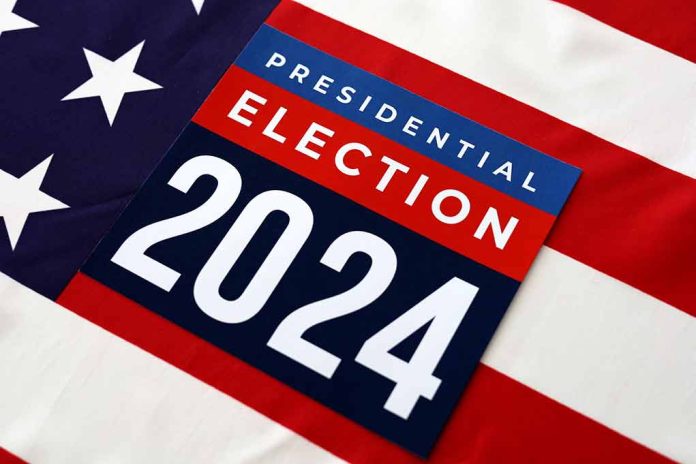
*Israeli voters overwhelmingly favor Trump over Harris for the 2024 U.S. presidential election, starkly contrasting with American Jewish preferences.
At a Glance
- 66% of Israelis support Trump for the 2024 U.S. presidential election, while only 17% back Harris
- 93% of coalition party voters in Israel favor Trump, with a mere 1% supporting Harris
- U.S. Jews show opposite preferences, with 68% supporting Harris and 25% favoring Trump
- Israeli support for Biden has waned despite his initial backing after the October 7, 2023 Hamas attacks
- The poll reflects complex political dynamics in Israel, with opposition parties potentially forming a majority
Israelis Overwhelmingly Favor Trump for 2024
A recent Channel 12 News poll has revealed a striking preference among Israelis for former President Donald Trump in the upcoming 2024 U.S. presidential election. The survey, conducted by Midgam on October 28 with 507 adult participants, shows that 66% of Israelis support Trump, while only 17% back Vice President Kamala Harris. This overwhelming support for Trump is even more pronounced among coalition party voters, where an astonishing 93% favor the former president, with a mere 1% supporting Harris.
The poll’s findings underscore a significant divide between Israeli public opinion and that of American Jews. While Israelis strongly favor Trump, a separate poll by the Jewish Democratic Council of America found that 68% of U.S. Jews support Harris, with only 25% favoring Trump. This stark contrast highlights the complex relationship between Israeli interests and American Jewish priorities.
Poll shows Israelis massively favor Trump over Harris in US election https://t.co/kERrfVVPvQ
— The Times of Israel (@TimesofIsrael) October 29, 2024
Trump’s Pro-Israel Legacy vs. Biden’s Waning Support
Trump’s strong support among Israelis can be attributed to his pro-Israel actions during his presidency. These include moving the U.S. embassy to Jerusalem, recognizing the Golan Heights annexation, and maintaining a tough stance on Iran. In contrast, while President Joe Biden initially gained favor with Israelis after supporting Israel following the October 7, 2023 Hamas attacks, this support has since diminished.
This shift in Israeli public opinion reflects a broader trend of skepticism towards the current U.S. administration’s Middle East policies. Many Israelis view Trump’s approach as more aligned with their national security interests, particularly concerning Iran and regional stability.
Implications for U.S.-Israel Relations and American Jewish Politics
The stark contrast between Israeli and American Jewish preferences in the upcoming U.S. election highlights the complex dynamics at play in U.S.-Israel relations. For American Jews, Israel is not a top priority, ranking behind issues such as democracy, abortion, and the economy. This divergence in priorities could potentially strain the traditionally strong ties between American Jews and Israel.
The poll results also raise questions about the potential impact on U.S. foreign policy towards Israel, depending on the outcome of the 2024 election. A Trump victory could lead to a continuation of his previous pro-Israel policies, while a Harris administration might take a different approach, potentially aligning more closely with the preferences of American Jews.
Israeli Political Landscape and Regional Dynamics
The Channel 12 News poll also provided insights into Israel’s domestic political situation. If elections were held today, Benjamin Netanyahu’s Likud Party would win 26 Knesset seats, while the National Unity Party would secure 22. The opposition is projected to win 68 mandates, compared to 52 for the coalition, including support from the Arab party Hadash-Ta’al.
These projections suggest that the opposition could only form a government with the help of an Arab party, highlighting the complex and often fractious nature of Israeli politics. The poll also indicates a rise in popularity for Netanyahu and his Likud party, likely due to recent military successes, although he still cannot form a government with the current coalition.
As tensions in the U.S. presidential race remain high, with concerns about potential election disputes, the implications for Israel and the broader Middle East are significant. The stark preference for Trump among Israelis, coupled with the complex domestic political landscape, underscores the intricate relationship between U.S. politics, Israeli interests, and regional stability.






















